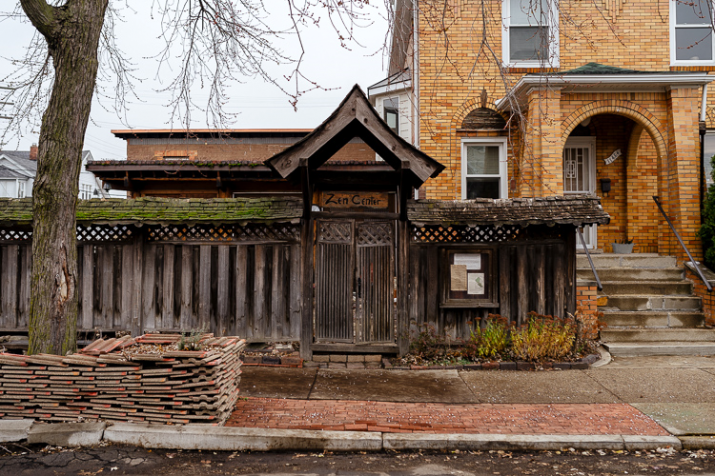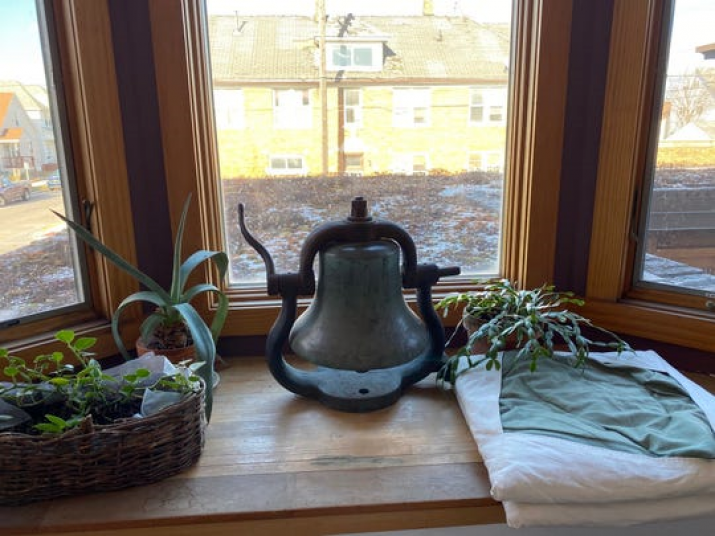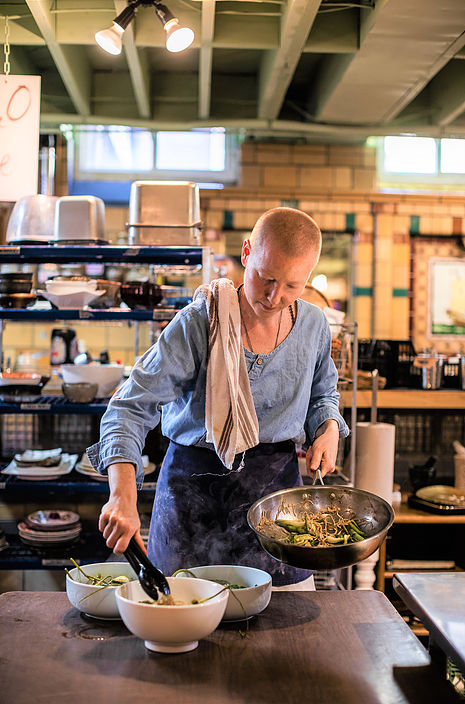NEWS
Detroit Zen Center’s Green Roof Paves the Way Toward Sustainability
 The Detroit Zen Center. From modelmedia.com
The Detroit Zen Center. From modelmedia.comThe Detroit Zen Center, Michigan, has come up with an innovative solution which it hopes will prevent future damage incurred by storms—a common occurrence in the area of Detroit. Having installed a green roof on its meditation hall (due to start operating in spring of 2020), the center’s monastics hope it will serve as a model of sustainability for the neighboring community.
Located at the heart of Hamtramck, an enclave city near the geographic center of Detroit, the Detroit Zen Center was founded in 1990 by its abbot, Hwalson Sunim. After spending 10 years training as a monk in South Korea, Sunim was encouraged by his teacher to open a monastery of the Sudeok-sa lineage in the United States. Turning down the opportunity to carry out this endeavor in California, Sunim instead chose to return to his hometown of Hamtramck, “a working-class neighborhood that is home to more than 30 ethnic groups, rich with culture and urban entrepreneurs.” (Detroit Zen Center)
The Detroit Zen Center is home to resident monastics who abide by a daily schedule of manual labor and meditation. It is also open to laypeople who wish to learn about Zen Buddhism and offers individualized courses in meditation. The center initially relied solely on donations to operate, but in 2012 Vice Abbot and Director Myunghi changed that model when she came up with the innovative idea of running a community-based business that fosters local sustainability.
 Green roof view at the Detroit Zen Center, which will open to the public in spring next year. From freep.com
Green roof view at the Detroit Zen Center, which will open to the public in spring next year. From freep.comAttached to the monastery now is Living Zen Organics, an organic grocery store and onsite café that is run by the center’s monastics and students, as well as locals from the neighborhood. The aim of the operation is to support local farms and provide affordable and plant-based organic food to the people of Detroit—who are generally at a disadvantage when it comes to accessing fresh produce.
Following a flood in 2014, the buildings that comprise the Detroit Zen Center were inundated with more than 1.2 meters of storm-sewage water. According to the Detroit Free Press, Sunim and Myungju felt there must be a better way to live for the inhabitants of the area—often first-generation immigrants struggling to pay their everyday bills, let alone covering the cost of damage incurred by flooding. They were also concerned about the health risks posed to people who were exposed to the contaminated sewage waste after the storms.
In line with their teachings on sustainability, the monastics came up with an environmentally friendly solution to address Hamtramck’s significant storm water management difficulties. Together with Michigan State University’s Green Roofs Research Program and Xero Flor Green Roof System, they made renovations that have enhanced the function of the center’s roof: the top of the meditation hall can now absorb 10,000 gallons of water.
“Green roofs can absorb storm water and they can model for a community like Hamtramck. It’s a possibility that is doable and reasonable for municipalities to pursue federal funding for green roof campaigns,” Myungiu explained. “Our hope is that Hamtramck will catch the spirit of this and recognize that it’s in a very unique and powerful position to potentially become the green-roof capital of southeast Michigan.” (Detroit Free Press)

Vice Abbot and Director Myungju of the Detroit Zen Center.
From detroitzencenter.org
See more
Detroit Zen Center hopes to make Hamtramck the green roof capital of Michigan (Detroit Free Press)
Detroit Zen Center Renovates, Builds Green Roof with Help from Community, Sterling Services (Sterling Companies)
Living Zen Organics (Detroit Zen Center)
Related news from Buddhistdoor Global
American Spiritual Teacher Ram Dass Dead at 88
Buddhist Monks at Thai Temple in Las Vegas Flee Gunfire and Arson
Buddhist Descendant of Wounded Knee Soldier Offers Apology to Lakota Nation
Zen Buddhist Priest Arrested at Natural Gas Pipeline Protest in Oregon
Buddhist Monk Cycles Across the US to Pursue the Spirit of America
Related features from Buddhistdoor Global
Staring at a Street Corner: And the Breathing Room that Comes With It
Sanghas in the West: Looking to the Future
What I’ve Learned about Surrendering to Love with Courage and Authenticity














